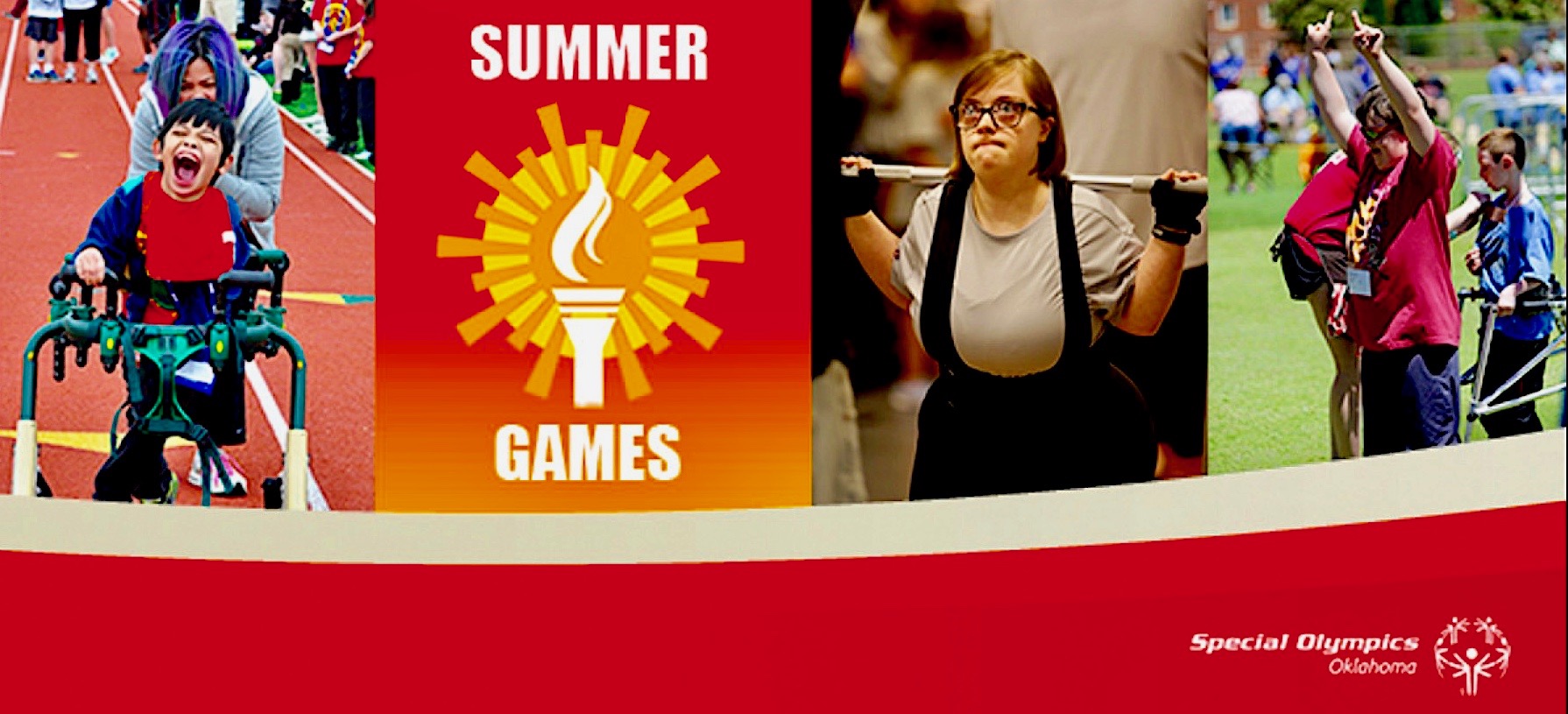Celebrating Special Olympics Oklahoma’s Summer Games

Law enforcement is no stranger to charity work, and in many communities, police departments work hand in hand with organizations like the Special Olympics to improve the lives of those living in their communities. Through Special Olympics Oklahoma, departments are especially engaged in encouraging and supporting Special Olympics athletes and their families through annual events like the Torch Run and Summer Games. At the opening ceremony, officers escort athletes in a parade and assist the Athlete of the Year in carrying the event’s famous Flame of Hope, which symbolizes acceptance, respect, and inclusion.
As the SOO Summer Games concludes today, we want to extend our congratulations to all of this year’s amazing athletes. Read on to discover more about this life-changing program, and how you can support the Special Olympics mission in your area:
What is the Special Olympics?
“Our main goal is to promote inclusion as everyone wants to feel accepted,” explains Paige Martin, the Oklahoma Special Olympics Marketing and Communications Manager. Aftermath had an opportunity to speak with her last week as she and others prepared for the Oklahoma Special Olympics Summer Games, held May 16th-18th.
According to the charity’s website, the goal of Special Olympics is for all persons with intellectual disabilities to have the opportunity to become useful and productive citizens who are accepted and respected within their local communities. Athletes carry the benefits from their involvement in Special Olympics with them into their daily lives at home, in the classroom, and on the job. Families are strengthened by participation in these events, and the community increases its understanding, acceptance, and respect for these individuals.
Celebrating the Summer Games
The Summer Games are held on the campus of Oklahoma State University in Stillwater, OK. During this time, the college opens its facilities to the athletes, their families, and fans, for three full days of competition and ceremonies. Competitions at the Summer Games include Athletics, Bocce, Bowling, Golf, Horseshoes, Powerlifting, Unified 3-on-3 Basketball and Unified Softball. The activities are broken out by age and level, and unified events involve both Special Olympics athletes and other community members, participating in cooperation with one another.
There are also other types of activities, like a Motor Activities Program, Healthy Athletes Program, Opening Ceremonies, an Olympic Village, Law Enforcement Torch Run, Celebration Night and Closing Ceremonies. There is also a Young Athletes Program for those 2-7 years old, where participants engage in basic sports skills mostly involving play.
Another special part of the Summer Games is when the Board of Directors names the Athlete of the Year. In the interview, Paige described the honor: “The award is given to the Athlete who best demonstrates the encouragement of teammates and a positive attitude. The Athlete of the Year gets to hold the flame with a police officer during the event’s opening ceremonies.”
Volunteering with Special Olympics
From the officers to the students from Oklahoma State University, events like the Summer Games are dependent on the efforts of volunteers. “Our organization only has a staff of 12 people, but there are 2200 volunteers signed up this year,” said Paige. “Our volunteers are so dedicated. Once you’re hooked, you’re hooked.”
Other volunteers get involved with the athletes directly. “We have a program called Unified Sports within the Special Olympics that pairs people with intellectual disabilities with people without disabilities so they can play together on the same team.” According to the charity’s website, young people with disabilities do not always get a chance to play on their school sports teams. Because of the program, many states are adopting policies that encourage inclusiveness and make sports more accessible to everyone.
Fundraising is also a critical aspect of volunteer work with the Special Olympics, and something many law enforcement officers take very seriously. The Law Enforcement Torch Run for Special Olympics is the organization’s largest grass-roots fundraiser and public awareness vehicle. During Torch Run events, officers and athletes run the Flame of Hope to the Opening Ceremonies of local Special Olympics competitions, state and provincial Games, and National Summer and Winter Games. It is one of the most visible means of support for the group, and serves to promote the organization’s core mission by appealing directly to the community.
Support for Special Olympics
As Oklahoma athletes conclude their summer competition today, many are already looking forward to 2019. Next year, the SOO will be celebrating its 50th year. “It’s a very big year for us,” said Paige. “The 50th Anniversary event is going to be extra special.”
Thanks once again to Paige and members of the SOO for taking time to talk with Aftermath about the importance of Special Olympics activities in Oklahoma and worldwide. We wish all of this year’s athletes the best of luck, and we look forward to more exciting events with these inspiring individuals!
The Special Olympics mission is a worldwide endeavor to improve the lives of intellectually disabled children and adults while also benefiting the communities where athletes live and work, and Aftermath is a proud participant of many SO events nationwide. Our technicians and supervisors team up with officers and neighbors for exciting activities like last week’s Shoot-Out competition with the Johnson County Sheriff’s Department of Kansas, and for fundraising events like the annual Illinois Cop on a Rooftop and numerous area Torch Runs.
Give the joy of sport to people in your community by supporting Special Olympics this summer. To find out what’s going on in your area, locate your nearest chapter. If you would like to learn more about this amazing organization or wish to get involved in your local Special Olympics chapter, please visit the SO website. If you don’t have time to give this summer, a donation of just $35 can help train an athlete all season long.
 877-872-4339
877-872-4339  Contact Us
Contact Us 






